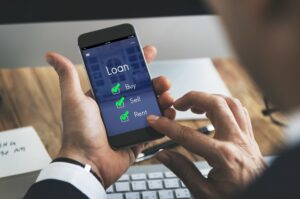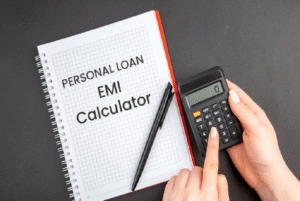Consumer credit: comparison of online offers and advice

What is consumer credit?
Consumer credit allows you to borrow from 200 euros to 75,000 euros over a repayment period of more than 3 months. There are several types of consumer credit. The best known are the personal loan, the assigned credit and the revolving credit.
The personal loan
The personal loan is a consumer credit that the borrower can use to buy what he wants, without having to justify his assignment(s). This is why it is also called credit without proof or cash credit. If the customer is not accountable, the credit institution may nevertheless charge a higher rate for this type of loan than for affected credit.
The personal loan in detail
The assigned credit
Unlike the personal loan, the assigned credit, as its name suggests, is a consumer credit taken out to buy a specific good or pay for a service defined in the contract. Thus, car, motorcycle, work, marriage, etc. loans are part of this category. Their granting is therefore conditional on the issuance of a certificate on the use of the funds (most often an invoice).
As a result of this distinction, for the same amount and duration of repayment, credit institutions generally offer lower borrowing interest rates when the borrower justifies the use of the loan. According to credit organizations, the assigned loan most often makes it possible to borrow a larger amount than a personal loan without proof.
Affected credit: definition and characteristics
Also called “revolving credit”, revolving credit takes the form of a cash reserve, easily mobilized once subscribed, in which it is possible to draw according to its needs , partially or entirely. The borrower does not pay interest on the total amount available, but only on the part he has actually used.
The counterpart of this atypical mode of operation is an interest rate that is often close to usury . This credit is therefore aimed at good managers, because its high rate and the fact of being able to draw regularly from a reserve of money makes it dangerous for someone who does not often monitor their accounts. Since early repayments are free, it is preferable to get out of debt as soon as possible, in order to limit the cost of borrowing. In addition, the establishment or organization that offers revolving credit must also present a classic depreciable credit offer; therefore compare the two, because there is less risk of over-indebtedness with a personal loan.
Revolving credit (or revolving): operation and dangers
La LOA
The rental with option to purchase (LOA) or “leasing” is a credit contract with the possibility of “raising the purchase”, that is to say, to acquire the property that is rented . Mostly used for cars, it can nevertheless be used for any type of good. The tenant is not the owner of the object for which he is paying rent until he has exercised the option. However, maintenance and insurance costs are his responsibility.
The contract is generally established for a period of 24 to 72 months, but the holder can choose to opt for the purchase before the term, respecting a minimum rental period.
Leasing is ideal for those who wish to have a new car (for example) and to change it regularly, in return for a fixed cost every month, while having the freedom to buy it if they wish. . The LOA should not be confused with the long-term rental (LDD), in which it is not possible to buy the object of the contract.
All about the LOA
Free credit or “several times without charge”
Despite its name, free credit is often not consumer credit. Indeed, to be qualified as such and benefit from its legal regime, the repayment period must be greater than 90 days . However, these “three times free of charge” payments are spread over three months. It is in fact a cash facility granted by the merchant. The only condition: to have a bank card, the numbers of which will be provided to make the direct debit. So beware of virtual cards; some organizations refuse them.
Beyond these 90 days, the free credit becomes a consumer credit whose interest is not paid by the buyer, but either by the seller or by the credit institution itself. The merchant agrees to bear this cost to facilitate the sale. The customer can indulge himself immediately, without having to save or take out a loan with interest.
Instant mini-loan
More and more players are offering “mini-loans”. Presented as nudges and quick solutions to finance a small unforeseen event, these loans are distinguished by low amounts (generally between 100 and 2500 euros) and above all a very short repayment period (often 3 months maximum). But these characteristics are precisely why they are not considered as conventional consumer credit. Result: they are not framed by the regulations and escape the protective framework of consumer credit .






